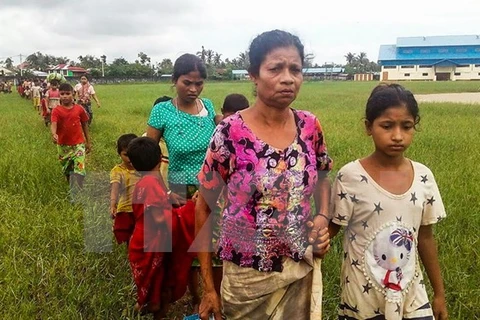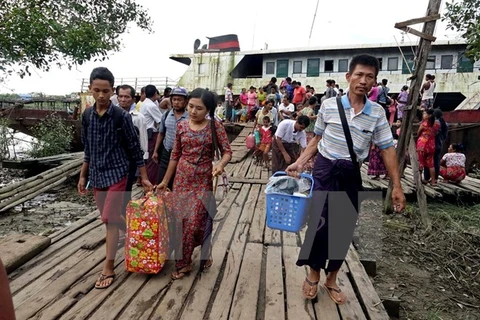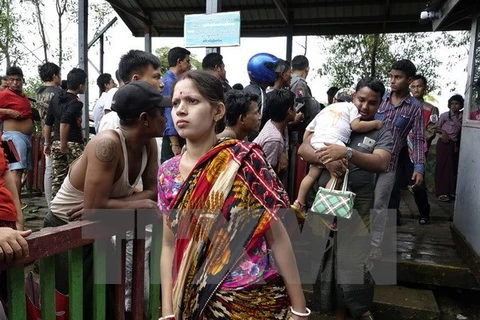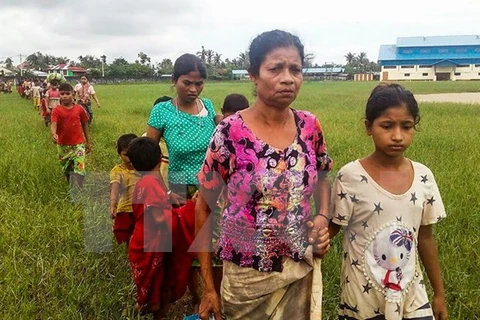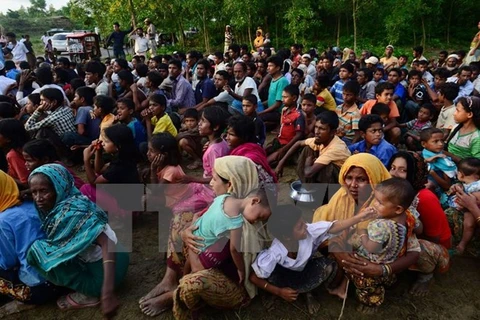Hanoi (VNA) - Myanmar's government has rejected a proposed ceasefire by militants in the country's Rakhine state, saying they don't "negotiate with terrorists."
The US’s news network CNN reported that the militants, known as Arakan Rohingya Salvation Army, or ARSA, issued a statement, saying “offensive military operations" would be paused until October 9 to give access to aid groups.
The statement called on the Myanmar government to do the same to address the "humanitarian crisis" unfolding in the state.
The statement was issued while Myanmar security forces were advancing to villages in Rakhine state to fight ARSA militants.
According to the Myanmar Government, 97 terrorist attacks by ARSA from August 25 to September 4 killed 36 people. A total of 59 villages and over 6,840 houses were burnt down while eight bridges were destroyed by the extremist terrorists. Meanwhile, 371 terrorists were also killed by the security forces.
Conflicts lasting for years in Rakhine broke out again in late August after insurgents attacked many police posts and a military outpost, forcing the Myanmar army to launch operations against the insurgents.
Armed conflicts have made about 313,000 Rohingya people flee from Rakhine to Bangladesh.-VNA
VNA

